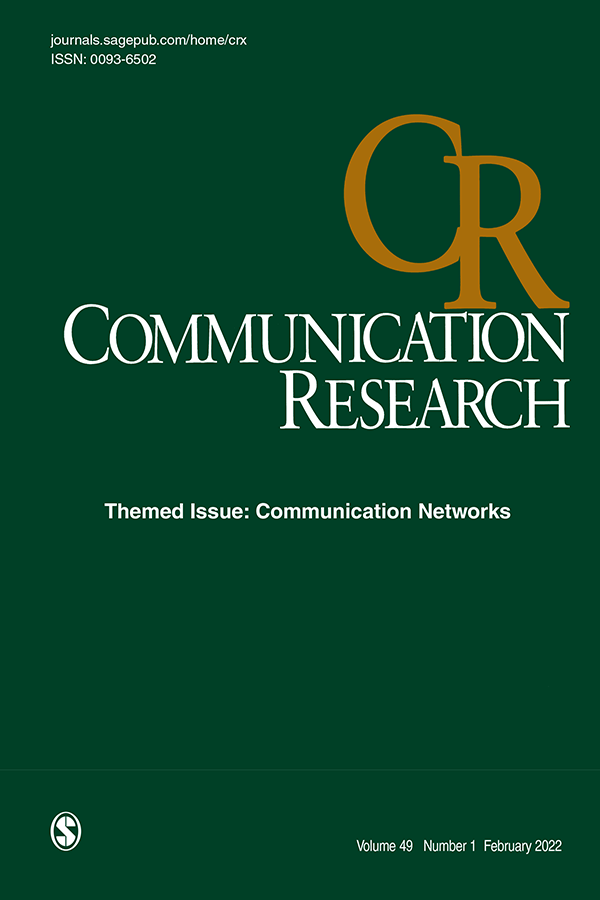The Group Roots of Social Media Politics: Social Sorting Predicts Perceptions of and Engagement in Politics on Social Media
IF 4.9
1区 文学
Q1 COMMUNICATION
引用次数: 1
Abstract
Research on political partisans suggests that social media offer ideal playing fields for the group game of politics. This study considers how political and social identities interact to influence political communication on social media. Using an original two-wave survey of Americans fielded during the 2020 election period, we analyzed how social media users’ levels of social sorting—the alignment between racial, religious, ideological, and political identities—related to perceptions of and engagement in politics on social media. Results suggest that those with higher (vs. lower) levels of social sorting were more likely to perceive their social media environments as dominated by political content and conflict, and populated with politically interested and like-minded people. Auto-regressive panel models suggested that social sorting and political use of social media may be reciprocally related. Findings indicate social sorting may be a key concept for unearthing the group roots of politics on social media.社交媒体政治的群体根源:社会分类预测社交媒体上的政治认知和参与
对政治党派人士的研究表明,社交媒体为政治团体游戏提供了理想的游戏环境。本研究考虑了政治和社会身份如何相互影响社交媒体上的政治传播。利用2020年大选期间对美国人进行的一项最初的两波调查,我们分析了社交媒体用户的社会分类水平——种族、宗教、意识形态和政治身份之间的一致性——与社交媒体上对政治的感知和参与之间的关系。结果表明,那些社会分类水平较高(与较低)的人更有可能认为他们的社交媒体环境被政治内容和冲突所主导,并且充斥着对政治感兴趣和志同道合的人。自回归面板模型表明,社交媒体的社会分类和政治使用可能相互关联。研究结果表明,社会分类可能是挖掘社交媒体上政治群体根源的一个关键概念。
本文章由计算机程序翻译,如有差异,请以英文原文为准。
求助全文
约1分钟内获得全文
求助全文
来源期刊

Communication Research
COMMUNICATION-
CiteScore
17.10
自引率
0.00%
发文量
20
期刊介绍:
Empirical research in communication began in the 20th century, and there are more researchers pursuing answers to communication questions today than at any other time. The editorial goal of Communication Research is to offer a special opportunity for reflection and change in the new millennium. To qualify for publication, research should, first, be explicitly tied to some form of communication; second, be theoretically driven with results that inform theory; third, use the most rigorous empirical methods; and fourth, be directly linked to the most important problems and issues facing humankind. Critieria do not privilege any particular context; indeed, we believe that the key problems facing humankind occur in close relationships, groups, organiations, and cultures.
 求助内容:
求助内容: 应助结果提醒方式:
应助结果提醒方式:


